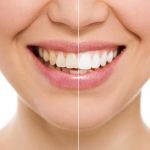
The Role of Fluoride in Maintaining Healthy Teeth for Seniors
As we get older, maintaining our dental health becomes more challenging. For many seniors, the issues that arise aren’t just about keeping our teeth white and clean – it’s about preventing tooth decay, cavities, and gum disease. One of the best tools to protect your teeth as you age is fluoride. I never realized just how vital fluoride would be in my later years until I started experiencing some of the common issues older adults face. In this article, I’ll share what I’ve learned about fluoride’s role in senior dental health and why it’s a key element in keeping your smile strong as you age.
1. What Is Fluoride and How Does It Work?
Fluoride is a natural mineral that can significantly improve your dental health by strengthening tooth enamel. It works by helping your teeth resist the acids that cause tooth decay, as well as assisting in the remineralization of enamel that may have been weakened by those acids. Fluoride has long been known for its ability to prevent cavities, and I personally learned how important it is after seeing the positive effects on my own dental health. As we age, our enamel naturally wears down, and fluoride plays a crucial role in preventing further damage and maintaining the integrity of our teeth.
But it’s not just about adding fluoride to your toothpaste. Fluoride can also be applied topically in the form of treatments at the dentist’s office or found in drinking water. It’s a simple yet effective way to ensure that your teeth remain protected throughout your life. When I first heard that fluoride could help prevent cavities well into my senior years, I was skeptical. However, after consulting with my dentist and incorporating fluoride treatments into my routine, I noticed fewer dental issues and a marked improvement in my oral health.
2. Why Seniors Are More Vulnerable to Tooth Decay
Tooth decay in seniors is a common issue, and it can be caused by several factors. As we age, our mouths produce less saliva, which is crucial for washing away food particles and neutralizing acids. Without sufficient saliva, bacteria thrive in the mouth, leading to tooth decay. In addition to this, many seniors may experience gum recession, which exposes the roots of the teeth, making them more susceptible to decay. As I’ve learned, it’s not uncommon for older adults to have cavities along the roots, a problem that fluoride can help prevent.
Another issue seniors face is the effects of medication. Many medications, especially those used to manage chronic conditions like hypertension or arthritis, can cause dry mouth as a side effect. This is a big problem because it leaves the teeth more vulnerable to plaque buildup and tooth decay. When I started taking medication for blood pressure, I noticed my mouth felt drier than usual, which made me even more vigilant about my oral hygiene. That’s when I decided to start using fluoride more regularly to combat the effects of dry mouth.
3. How Fluoride Helps Seniors Maintain Strong Teeth
Fluoride works by strengthening the enamel and making it more resistant to decay, which is especially important for seniors. Here are some of the key benefits I’ve found fluoride offers for older adults:
1. Prevents Cavities: Fluoride helps remineralize the enamel, making it harder for acid to break it down. This means fewer cavities, especially along the tooth roots, which are more prone to decay in seniors.
2. Reduces Sensitivity: Many older adults experience tooth sensitivity due to gum recession or thinning enamel. Fluoride can help reduce this sensitivity by strengthening the enamel and providing a protective layer over exposed areas.
3. Fights Dry Mouth: As mentioned earlier, dry mouth is a common issue for seniors, and it can lead to more cavities and gum disease. Fluoride helps strengthen the enamel, making it more resistant to the harmful effects of dry mouth. I’ve personally noticed a decrease in sensitivity and discomfort since I started using fluoride toothpaste more regularly.
4. Protects Against Gum Disease: While fluoride is most often associated with preventing cavities, it can also help protect your gums. The antimicrobial properties of fluoride can help fight harmful bacteria in the mouth, which is crucial for seniors who may be more prone to gum disease.
4. Ways to Incorporate Fluoride into Your Routine
There are several ways to incorporate fluoride into your daily routine, and I’ve found that a combination of methods works best. Here are some of the most effective ways I’ve used to ensure I’m getting enough fluoride:
1. Fluoride Toothpaste: This is the most common and accessible way to get fluoride. Make sure your toothpaste contains fluoride, and brush twice a day. I always make sure to use a fluoride toothpaste that has the American Dental Association (ADA) seal of approval.
2. Fluoride Rinses: Fluoride mouth rinses can be an excellent supplement to regular brushing. I’ve found that a fluoride rinse, used after brushing, provides additional protection and can be especially beneficial if you’re prone to cavities or gum disease.
3. Fluoride Treatments at the Dentist: Many dentists offer professional fluoride treatments that can provide extra protection. These treatments are especially helpful if you have a history of cavities or are dealing with other oral health issues. I’ve had a fluoride treatment a few times, and it’s definitely given me peace of mind knowing my teeth are receiving extra protection.
4. Fluoridated Water: Drinking water that contains fluoride is another great way to boost your oral health. Many communities fluoridate their water, so check with your local water supplier to see if it’s available in your area. If not, you can ask your dentist about fluoride supplements.
5. Monitoring Your Oral Health Regularly
As we age, it’s important to monitor our oral health more regularly. I learned that regular dental visits are crucial for seniors, as they allow your dentist to check for early signs of decay, gum disease, or other oral health issues. Fluoride treatments during these visits can be tailored to your specific needs, providing an extra layer of protection against tooth decay and other concerns.
During my own dental visits, I found that having fluoride treatments helped to give my dentist more time to focus on other issues, such as my gum health or checking for signs of oral cancer. I can’t stress enough how important it is to keep up with regular dental exams as you age.
6. Final Thoughts on Fluoride for Seniors
Fluoride is a simple, affordable, and effective way to maintain your dental health as you age. It helps to prevent tooth decay, reduce sensitivity, and protect against gum disease, which are all crucial for seniors. I’ve experienced firsthand how fluoride can help strengthen teeth and reduce the risk of cavities, especially when dealing with the challenges of dry mouth or medication side effects. By incorporating fluoride into your oral care routine, you can maintain a healthy smile and reduce the likelihood of costly dental procedures down the road. Don’t overlook this powerful tool in your dental care arsenal!







 Open Door Family Medical Center- Sleepy Hollow4.0 (215 review)
Open Door Family Medical Center- Sleepy Hollow4.0 (215 review) Hanson Place Dental1.0 (441 review)
Hanson Place Dental1.0 (441 review) Nak4 Orthodontics Arlington Heights4.0 (253 review)
Nak4 Orthodontics Arlington Heights4.0 (253 review) Red Oak Dentistry: Dr. Michael King4.0 (74 review)
Red Oak Dentistry: Dr. Michael King4.0 (74 review) Blissful Dental4.0 (440 review)
Blissful Dental4.0 (440 review) ADVANCED SMILES PC4.0 (205 review)
ADVANCED SMILES PC4.0 (205 review) The Importance of Oral Health Education During Pregnancy for a Healthy Pregnancy
The Importance of Oral Health Education During Pregnancy for a Healthy Pregnancy Best Tips for Brushing Your Teeth Properly for Healthy Gums: Essential Techniques for Oral Health
Best Tips for Brushing Your Teeth Properly for Healthy Gums: Essential Techniques for Oral Health Why Skipping Dental Checkups Can Lead to Bigger Oral Health Problems
Why Skipping Dental Checkups Can Lead to Bigger Oral Health Problems Advantages of Porcelain Dental Restorations
Advantages of Porcelain Dental Restorations How Can Diabetes Cause Tooth and Gum Problems? Preventing and Managing Oral Health Issues
How Can Diabetes Cause Tooth and Gum Problems? Preventing and Managing Oral Health Issues Healthy Habits for Promoting Good Oral Health and Hygiene: Tips for a Healthy Smile
Healthy Habits for Promoting Good Oral Health and Hygiene: Tips for a Healthy Smile